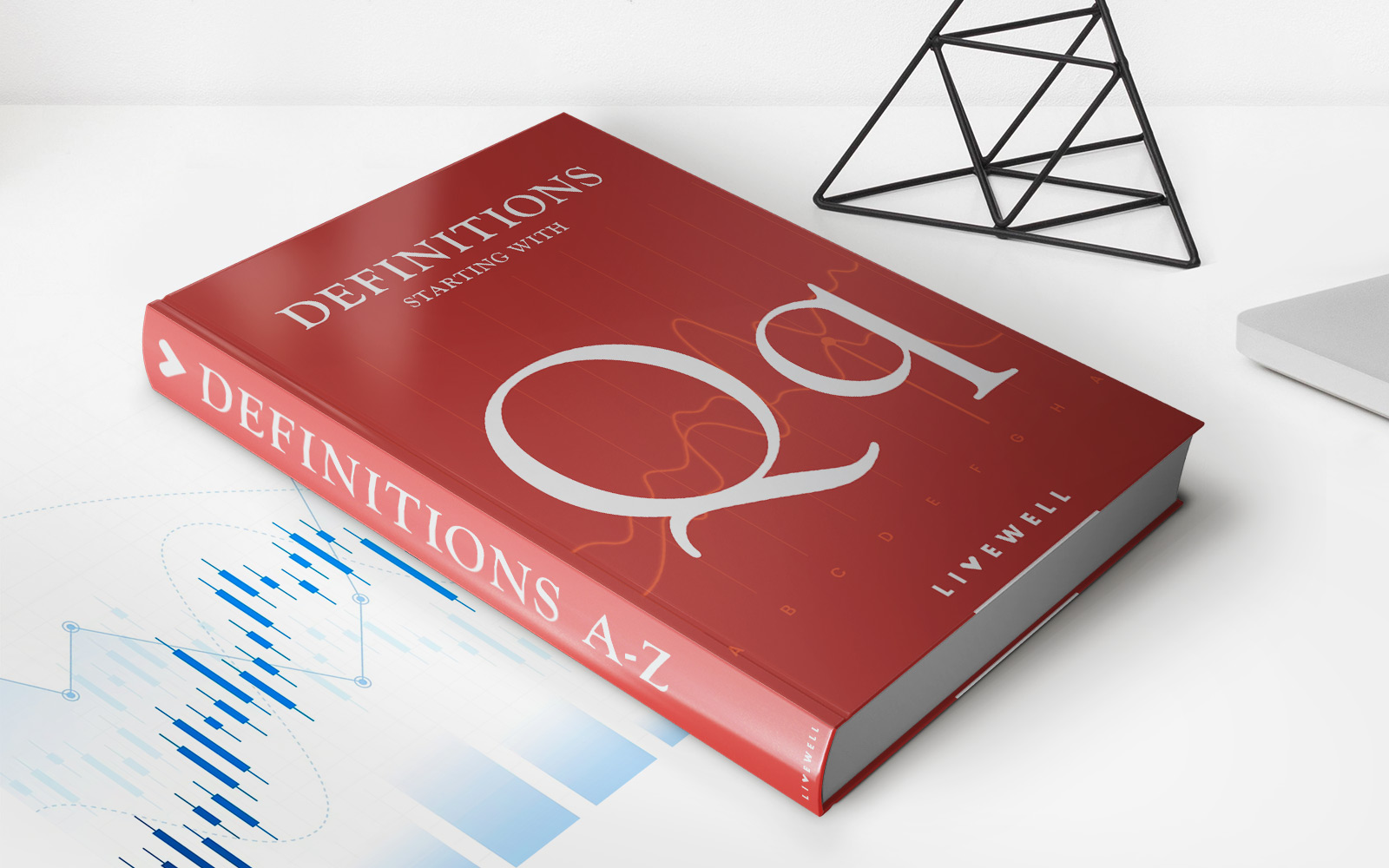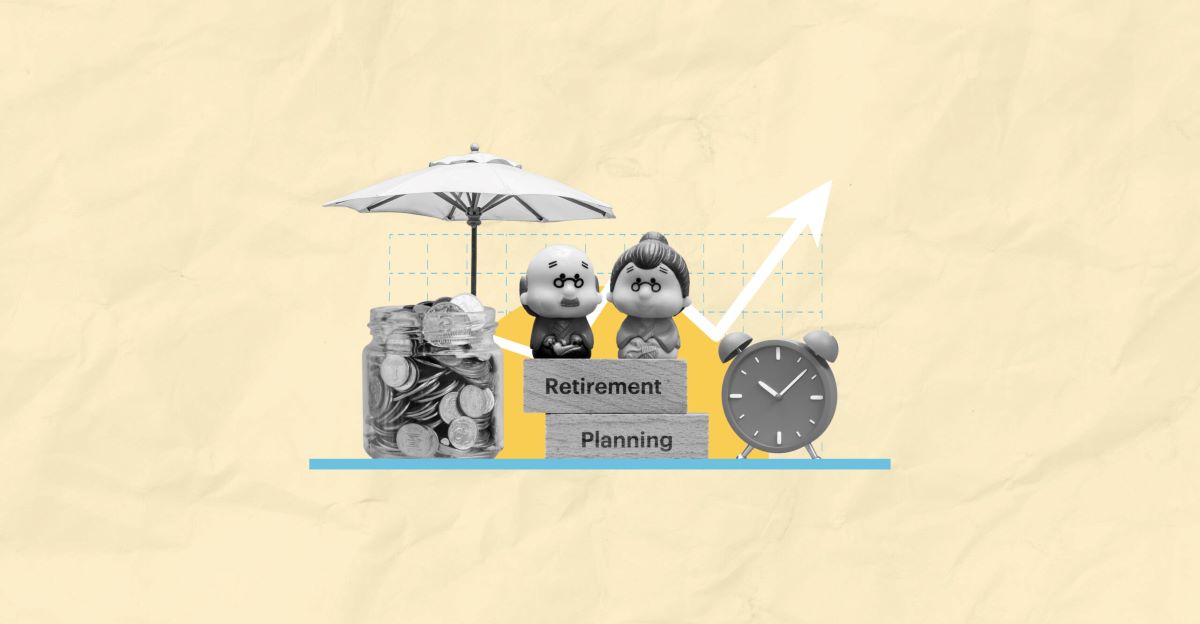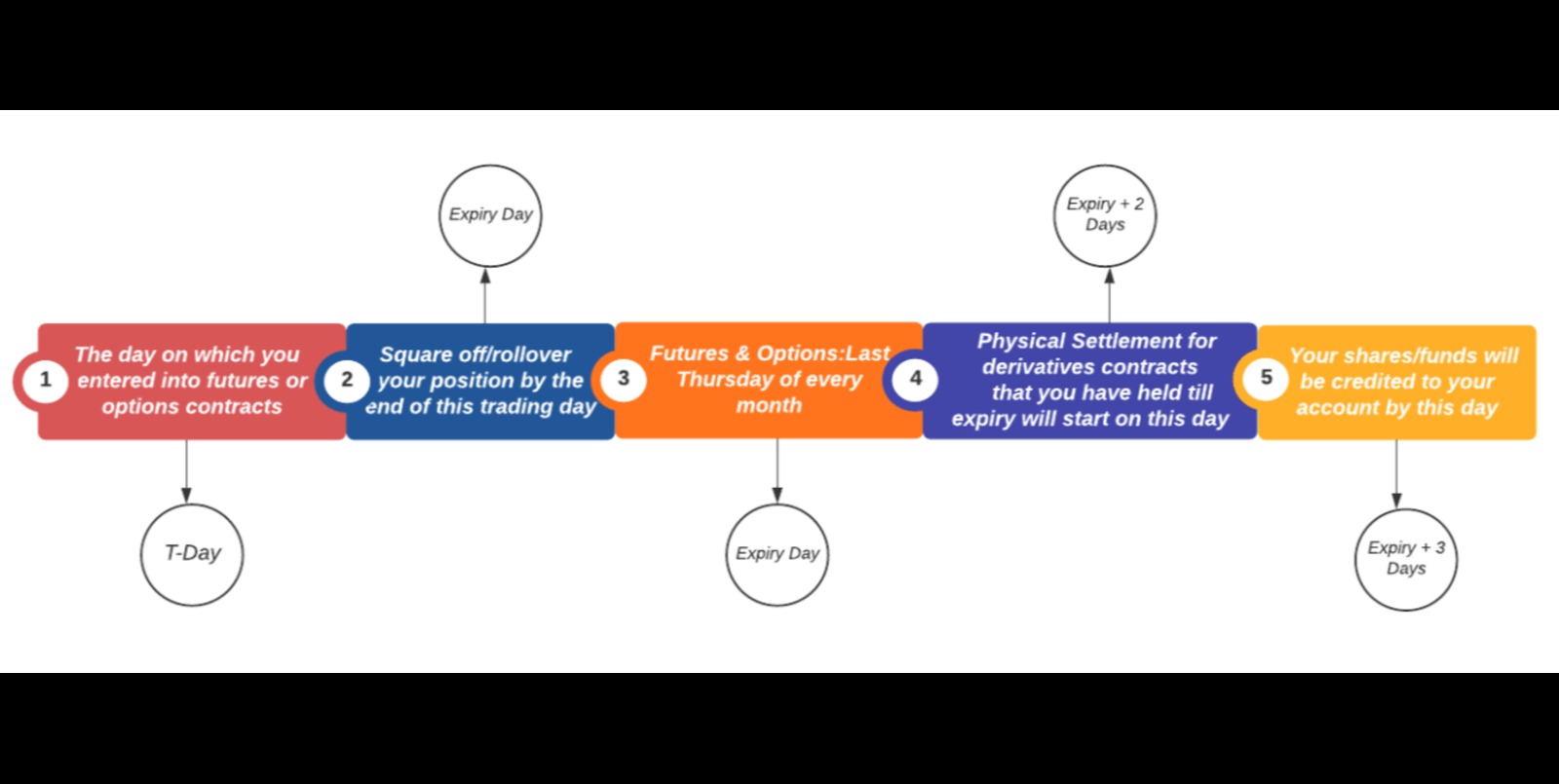Home>Finance>What Is The Main Advantage Of Retirement Planning?


Finance
What Is The Main Advantage Of Retirement Planning?
Published: January 21, 2024
Discover the significant benefit of retirement planning in your financial life. Ensure a secure and stable future with strategic financial management and effective retirement plans.
(Many of the links in this article redirect to a specific reviewed product. Your purchase of these products through affiliate links helps to generate commission for LiveWell, at no extra cost. Learn more)
Table of Contents
Introduction
Retirement planning is an essential part of financial management that focuses on building a nest egg for the future. It involves setting aside funds and making investment decisions to ensure a financially secure and comfortable retirement. Many people often underestimate the importance of retirement planning until they reach the later stages of their career. However, starting early and being proactive in retirement planning can offer numerous advantages and significantly impact one’s quality of life during retirement.
With life expectancy increasing and the cost of living rising, it is crucial to have a well-thought-out retirement plan in place. This article will explore the main advantages of retirement planning and highlight why it is essential for individuals to take control of their financial future.
While retirement planning can seem daunting, especially when faced with the day-to-day financial obligations, the benefits and peace of mind it offers are invaluable. By dedicating time and effort to create a robust retirement plan, individuals can ensure a stable and secure future for themselves and their loved ones.
Now let’s delve into the main advantages of retirement planning.
Financial Stability in Retirement
One of the primary advantages of retirement planning is the guarantee of financial stability during your golden years. Without proper planning and savings, retirees may find themselves struggling to cover basic living expenses, medical costs, and unexpected financial emergencies. Planning ahead allows individuals to accumulate a sufficient retirement fund, ensuring a steady income stream to rely on when they no longer have a regular paycheck.
Retirement planning involves analyzing current financial standing, setting realistic goals, and devising strategies to achieve those goals. By considering factors such as inflation, lifestyle choices, and desired retirement age, individuals can estimate the amount of money needed to maintain their standard of living after they stop working. This assessment helps determine how much to save and invest in order to reach those financial goals.
In addition to setting savings goals, retirement planning involves making wise investment decisions. By diversifying investment portfolios and taking advantage of tax-advantaged retirement accounts, individuals can maximize returns and minimize risks. This approach increases the likelihood of achieving the desired financial stability in retirement.
Financial stability in retirement provides individuals with the freedom to pursue hobbies, travel, and enjoy their leisure time without the constant worry of money. It allows retirees to maintain their independence and enjoy a comfortable lifestyle.
Without retirement planning, individuals may face the risk of outliving their savings and having to rely solely on government assistance or family support. This can be a significant source of stress and anxiety. Planning for retirement ensures that you have a safety net to fall back on and can enjoy your retirement years without financial strain.
Peace of Mind and Reduced Stress
Retirement planning not only provides financial stability but also offers individuals peace of mind and reduces stress. Knowing that you have a well-thought-out plan in place can alleviate the worry and uncertainty associated with the future.
Without proper planning, individuals often find themselves in a constant state of financial stress, worrying about how they will manage their expenses and maintain their desired lifestyle during retirement. This stress can take a toll on both physical and mental health, impacting overall well-being.
By engaging in retirement planning, individuals can gain a sense of control and security over their financial future. Having a clear roadmap and knowing how much money will be available for retirement allows individuals to confidently face the future with reduced anxiety.
Retirement planning involves assessing current financial resources, evaluating future expenses, and creating a realistic budget. By having a clear understanding of income and expenses, individuals can make informed decisions and take proactive steps to save and invest accordingly.
Additionally, retirement planning helps individuals anticipate and prepare for unexpected financial events. By setting up an emergency fund and having adequate insurance coverage, retirees can handle unforeseen expenses without experiencing a significant financial setback or increased stress.
Furthermore, retirement planning enables individuals to adjust their lifestyle and spending habits as needed. By having a budget and understanding how much money is available, individuals can make conscious choices about their expenses and prioritize their financial well-being.
Overall, retirement planning not only provides financial security but also peace of mind and reduced stress. By taking control of your financial future, you can enjoy retirement years without constantly worrying about finances, allowing you to focus on the things that truly matter and promote a healthier and happier lifestyle.
Flexibility and Control
Retirement planning offers individuals the advantage of flexibility and control over their financial decisions. When you plan for retirement, you are taking charge of your financial future and setting yourself up for a more adaptable and fulfilling retirement experience.
One of the key aspects of retirement planning is setting up a diverse investment portfolio. This provides the flexibility to choose the types of investments that align with your risk tolerance, financial goals, and personal preferences. Whether you prefer stocks, bonds, real estate, or other investment vehicles, having control over your investment choices allows you to tailor your portfolio to meet your specific needs.
Additionally, retirement planning empowers individuals to make strategic decisions regarding their retirement age and lifestyle. With a well-executed plan, individuals have the option to retire earlier or continue working longer based on their personal goals and financial circumstances. This flexibility can be particularly valuable for those who wish to pursue other interests, start a new venture, or have more time for family and leisure activities.
Retirement planning also provides control over the timing and distribution of retirement funds. By carefully managing withdrawals from retirement accounts, individuals can minimize taxes and optimize their income streams. This level of control enables retirees to create a sustainable and predictable cash flow, ensuring a comfortable retirement without the fear of running out of money.
Moreover, retirement planning allows individuals to plan for major life events or unexpected expenses. By having a financial cushion in the form of savings or insurance, retirees can handle unforeseen circumstances without facing major disruptions to their lifestyle or financial stability. This level of control provides peace of mind and mitigates the stress associated with unexpected financial challenges.
In summary, retirement planning offers the advantage of flexibility and control over financial decisions. By taking initiative and crafting a personalized plan, individuals can optimize their investments, choose their retirement age, and have the peace of mind that comes with having control over their financial future.
Tax Benefits and Savings
Retirement planning not only allows individuals to save for their future but also offers significant tax benefits. Understanding and taking advantage of these tax incentives can further enhance the financial advantages of planning for retirement.
One of the primary tax benefits of retirement planning is the ability to contribute to tax-advantaged retirement accounts, such as 401(k)s, individual retirement accounts (IRAs), or Roth IRAs. Contributions to these accounts are either made with pre-tax income (traditional accounts) or with after-tax income (Roth accounts). These contributions can be tax-deductible, reducing individuals’ taxable income in the year of contribution, which can result in immediate tax savings.
Another tax advantage lies in the deferral of taxes on investment gains within retirement accounts. The income generated from investments within these accounts is typically not subject to taxes until withdrawals are made during retirement. This allows investments to grow and compound tax-free, maximizing the long-term growth potential of retirement savings.
Additionally, retirees may have more control over their income levels during retirement, allowing them to strategically manage their tax liability. By utilizing a combination of taxable, tax-deferred, and tax-free accounts, individuals can optimize their tax situation by strategically withdrawing funds from different sources to minimize their taxable income in any given year.
Retirement planning also offers opportunities for further tax savings through capital gains tax planning. By carefully managing the timing and amount of capital gains realized, retirees can minimize their tax liability and potentially qualify for preferential tax treatment on investments held for the long term.
Furthermore, many jurisdictions offer specific tax benefits for retirees, such as exemptions or deductions for retirement income, property tax discounts, or credits for healthcare expenses. By staying informed about these provisions and taking advantage of them, individuals can maximize their tax savings during retirement.
Overall, retirement planning presents individuals with the opportunity to take advantage of various tax benefits and savings strategies. By understanding the tax implications and utilizing tax-advantaged accounts, retirees can reduce their tax burden, keep more of their hard-earned money, and effectively maximize their savings for a comfortable and financially secure retirement.
Healthcare and Medical Costs
Retirement planning plays a crucial role in addressing healthcare and medical costs during retirement. As individuals age, the need for healthcare services often increases, and without proper planning, these expenses can quickly become a significant financial burden.
One of the main advantages of retirement planning is the ability to save and allocate funds specifically for healthcare costs. By estimating healthcare expenses, including insurance premiums, prescription medications, doctor visits, and potential long-term care needs, individuals can budget and save accordingly. This proactive approach allows individuals to maintain their desired level of healthcare coverage and access to quality medical services.
Retirement planning also involves understanding and utilizing healthcare insurance options available during retirement, such as Medicare in the United States. Medicare provides essential health insurance coverage for individuals aged 65 and older, but it does not cover all medical expenses. By understanding the various Medicare parts and additional insurance options, retirees can make informed decisions to fill potential gaps in coverage and reduce out-of-pocket costs.
Additionally, retirement planning allows individuals to handle unexpected medical expenses. By maintaining an emergency fund or having adequate health insurance coverage, retirees can navigate unforeseen health challenges without depleting their retirement savings or facing financial hardships.
Furthermore, retirement planning can include long-term care provisions. Long-term care can be expensive, whether it is provided at home, in an assisted living facility, or a nursing home. By considering long-term care insurance or other options, individuals can protect themselves and their assets from the potentially high costs associated with long-term care services.
By actively including healthcare and medical costs as part of retirement planning, individuals can ensure that these expenses are accounted for and mitigated. Having a comprehensive plan in place offers peace of mind and reduces the financial stress associated with healthcare in retirement, allowing individuals to focus on their health and well-being.
Legacy Planning
Legacy planning is an important component of retirement planning that allows individuals to leave a lasting impact and provide for their loved ones after they are gone. It involves making decisions about the distribution of assets, minimizing estate taxes, and ensuring a smooth transfer of wealth to the next generation.
Retirement planning provides individuals with the opportunity to accumulate wealth and assets over their working years. By incorporating legacy planning into their retirement plan, individuals can outline how they want their assets to be distributed, specify beneficiaries, and create strategies to minimize taxes and maximize the value of their estate. This ensures that their wishes are honored and their beneficiaries are taken care of.
One common approach to legacy planning is creating a comprehensive estate plan, including a will and trusts. A will outlines how assets and property should be distributed upon the individual’s passing, while trusts can help manage and preserve assets, provide for specific needs, and potentially reduce estate taxes. By engaging in legacy planning, individuals can have peace of mind knowing that their assets will be distributed according to their wishes.
In addition to establishing a will and trusts, retirement planning allows individuals to consider charitable giving as part of their legacy. By incorporating philanthropic goals into their retirement plan, individuals can support causes they are passionate about and leave a positive impact on their communities or society as a whole.
Retirement planning also provides the opportunity to plan for potential healthcare expenses or long-term care needs that may arise during retirement. By having adequate insurance and savings in place, individuals can help protect their assets from being depleted by medical costs and ensure that they are not a financial burden on their loved ones.
Legacy planning is not solely about financial assets; it can also involve passing down values, traditions, and family stories to future generations. By actively engaging in conversations with loved ones about personal values, morals, and family history, individuals can ensure that their legacy extends beyond material wealth.
By integrating legacy planning into their retirement plan, individuals can leave a meaningful and lasting legacy for their families and communities. It allows individuals to have control over how their assets are distributed, minimize taxes, support charitable causes, and pass down their values and traditions to future generations.
Conclusion
Retirement planning is an essential step in securing financial stability and enjoying a comfortable lifestyle during your golden years. By taking the time to create a retirement plan, individuals can reap numerous advantages that have a lasting impact on their financial well-being and overall quality of life.
Financial stability in retirement is a primary advantage of planning. By setting savings goals, diversifying investments, and understanding future expenses, individuals can ensure a steady income stream to cover their living costs and fulfill their retirement dreams. This stability provides peace of mind and reduces stress, allowing retirees to fully enjoy their well-deserved leisure time.
Retirement planning also offers flexibility and control, allowing individuals to tailor their retirement age, investment choices, and income strategies to fit their unique circumstances and goals. This independence empowers individuals to make informed decisions and pursue their passions during retirement.
Furthermore, retirement planning provides significant tax benefits and savings opportunities. By taking advantage of tax-advantaged accounts, managing capital gains, and utilizing strategic withdrawal strategies, retirees can minimize their tax liabilities and maximize their savings.
Healthcare and medical costs are significant considerations in retirement planning. By budgeting for healthcare expenses, understanding insurance options, and planning for long-term care needs, individuals can protect their financial well-being and ensure the best possible healthcare during their retirement years.
Lastly, retirement planning encompasses legacy planning, which allows individuals to leave a lasting impact and provide for their loved ones. By creating an estate plan, considering charitable giving, and passing down values and stories, individuals can shape their legacy and ensure their assets are distributed according to their wishes.
In conclusion, retirement planning is a vital aspect of financial management. It offers the advantages of financial stability, peace of mind, flexibility, tax benefits, healthcare preparedness, and legacy planning. Taking proactive steps towards retirement planning sets the foundation for a secure and fulfilling retirement, allowing individuals to enjoy their golden years to the fullest.














